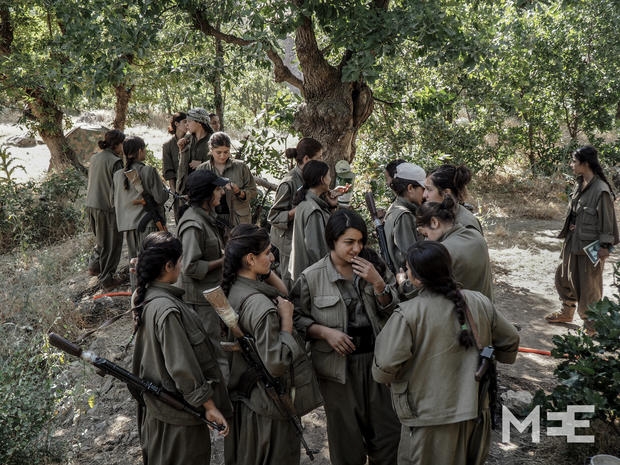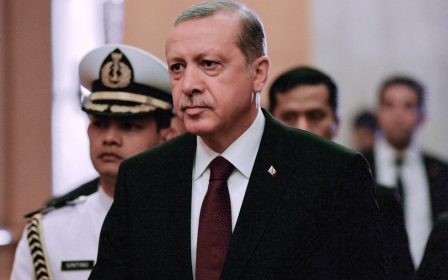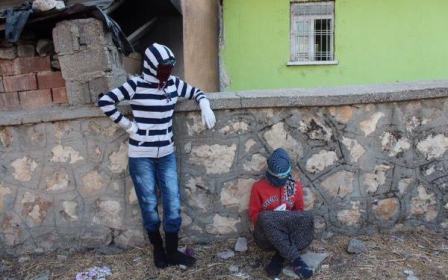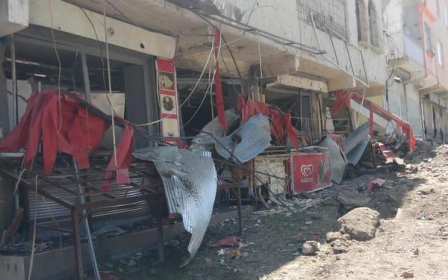Turkey accuses BBC of supporting terrorism over PKK female fighter report

Turkey’s Foreign Ministry on Friday accused the BBC of supporting terrorism, after the British broadcaster aired a report profiling female fighters from the Kurdistan Workers’ Party (PKK).
The Foreign Ministry said in a statement that the BBC had “aired PKK propaganda material,” which they added was “open support for terrorism”.
On Wednesday the BBC broadcast a report from the Qandil Mountains, the PKK’s stronghold in northern Iraq. It followed a woman who had escaped from being held by the Islamic State and was now being trained by the PKK to fight against the group.
Turkey said the BBC had depicted “a terrorist organisation as innocent” and condemned the report as an “unacceptable” violation of United Nations and European Union resolutions that designate the PKK as a proscribed organisation.
Ankara called on the BBC to "adopt the same editorial guidelines as it did when the IRA bombed police stations in Northern Ireland," referring to dissident Irish republicans who waged a guerrilla war against the UK until 1994 with the aim of uniting the island of Ireland into one country.
A peace process between Turkey and the PKK, which was launched in 2012, has collapsed after the Kurdish group relaunched attacks following a deadly bombing in southeast Turkey that killed 33 pro-Kurdish activists.
The attack was blamed on the Islamic State group, and the PKK has accused Turkey of being complicit in the group’s activities – an accusation Turkish authorities have vehemently denied.
Turkey has carried out a campaign of air attacks against the PKK, and on Friday the country’s official news agency reported that 771 Kurdish fighters have been killed in the past four weeks.
The Anatolia news agency, whose figures could not be confirmed independently, said among those killed were 430 fighters who died in air raids on PKK camps in Iraq.
Another 260 were killed in ground operations in southeast Turkey, Anatolia said, quoting what it said were sources in military intelligence.
The PKK, for its part, has been blamed for attacks that have killed around 50 Turkish soldiers.
Eight were killed on Wednesday in a remote-controlled roadside bomb in the southeast province of Siirt.
Analysts covering the Turkey-PKK conflict have cast doubt on whether air strikes will impact the group in a significant manner.
"The PKK probably lost a few dozen people early on as they were not expecting such a sudden or ferocious series of air strikes," said David Romano, Professor of Middle East Politics at Missouri State University and author of The Kurdish Nationalist Movement.
"However, the PKK has lots of experience dispersing and hiding from the Turkish military."
Soner Cagaptay, director of the Turkish Research Program at the Washington Institute, also downplayed the damage from air attacks. "In the absence of a parallel cross-border operation that would involve ground troops, air strikes are effective only to an extent. They are more symbolic than crippling," he told AFP.
Middle East Eye propose une couverture et une analyse indépendantes et incomparables du Moyen-Orient, de l’Afrique du Nord et d’autres régions du monde. Pour en savoir plus sur la reprise de ce contenu et les frais qui s’appliquent, veuillez remplir ce formulaire [en anglais]. Pour en savoir plus sur MEE, cliquez ici [en anglais].




